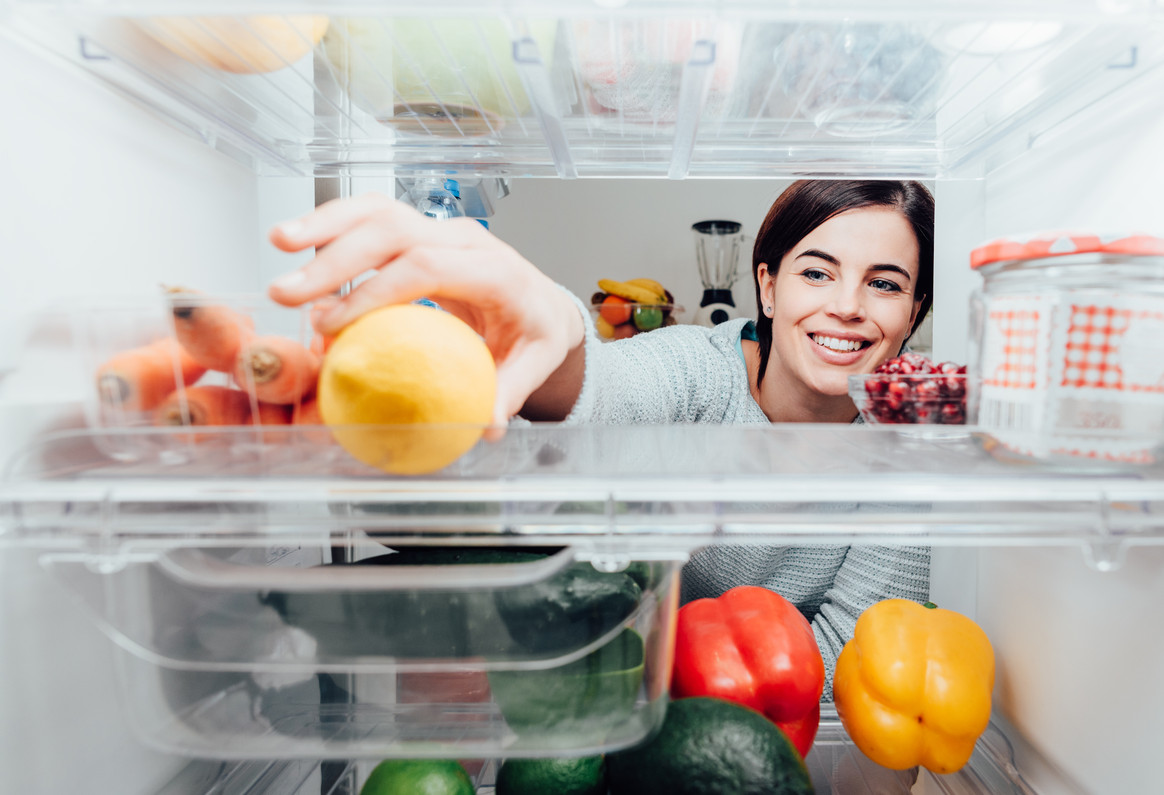Tips to Keep Food in Better Condition in Your Refrigerator and Freezer
When bringing cold foods with you on vacation, there are certain practices that can keep them fresher for longer, prolonging their life and keeping them from going bad. If you’ve ever opened up the cooler for burgers and found that the meat didn’t look so great, you’ll know how frustrating it can be if these practices are ignored or forgotten. To keep you in the know with proper food storage information, we’ve compiled a list of what to do with the foods you put in your freezer and in your fridge as well as general food storage tips. Keep on reading to keep your food fresh and your bellies full!
Freezer
Anything you store in the freezer is pretty much guaranteed not to go bad for a bit. But how long exactly is that and in what shape will your food return in? With proper storage precautions, you can prevent things like excess frost, dried-out food, and spillage.
- Wipe containers down and keep them closed before storing them in the freezer to avoid needless spills. No one likes cleaning up spills and it gets worse when said spills freeze all over the other food. To keep this from happening, seal your bags, snap all the lids down, and clean up anything that might be on the sides of them. If possible, make sure they are dry as well before placing them in the freezer.
- If you are storing hot foods such as leftovers in the freezer, let them cool down before placing them inside. This prevents unnecessary energy use as well as preventing things like broken containers (such as glass).
- When storing meats, keep them in the original packaging or rewrap them as necessary. If you can get away with it, don’t open the package before you need to. If you do need to open it, make sure it is sealed away in a container or bag before placing them in there. Meats especially are temperamental as well as a pain to clean up if something happens and you don’t want your chicken to go bad before you have a chance to eat it.
- No matter what you place in the freezer, proper freezing storage requires correct packaging. Place all foods in packages (bags or containers) that do not allow the flow of air or moisture out. Not doing so can lead to odor or taste transfer and will result in the drying out of the improperly packaged food.
- If your package has specific instructions for a tight seal, follow said instructions.
- Do not refreeze defrosted/thawed foods. This will degrade the quality of the food. If it’s already out, try and uses it as quickly as possible.
- A good thing to do is to write the freezing date on the packaging so that you know exactly when it was placed in the freezer. Certain foods have a certain length of time in which they can be placed in the freezer without going bad. For example: TV dinners are 3-4 months; fresh shrimp, scallops, and crawfish are 3-6 months; hamburger and stew meats are 3-4 months; ground turkey, veal, or pork are 3-4 months; chops are 4-6 months; chicken and turkey are 6-8 months.
Refrigerator
Your refrigerator has more of the day-to-day foods, so the packaging rules can be a little looser. There are still ways to keep your food fresher, though.
- When storing foods that are not pre-packaged, wrap them or store them in airtight and moisture-proof materials unless otherwise noted. This keeps it fresher for longer and prevents the transfer of odor or taste.
- Wipe the containers before you place them in the fridge. This prevents food from getting on other containers and keeps everything clean.
- Eggs should be stored in an upright position in their original carton to maximize their shelf life.
- Fruits should be washed and dried and then stored in sealed plastic bags before placing in the refrigerator. Vegetables should be washed and drained before being stored in plastic bags or containers and placed in the fridge.
- Any hot foods such as leftovers should be allowed to cool before going in the fridge so that you can prevent unnecessary energy use.
- If you have seafood that you are not freezing, it should be used the same day as it was purchased. Seafood is fickle meat and doesn’t like to be kept waiting. It could go bad.
- Certain foods have certain shelf lives for storage in the refrigerator as well. For example: chicken is 1-2 days; ground beef is 1-2 days, cold cuts are 3-5 days, steaks and roasts are 3-5 days; smokes and cured meats are 7-10 days.
Extra Tips
- Don’t refreeze foods that have been completely thawed. If they still contain ice crystals or if they are still cold (below 40 degrees Fahrenheit), they may still be okay to freeze again.
- If your meat, such as poultry, beef, or fish, has an off odor or off color, it should be frozen, stored, or eaten. It is best to dispose of any meat that you don’t quite trust.
- Thawed ice cream should be discarded. I know how much you want to save it, but it’s beyond the point of no return.
- If any of your food has an odd color or odor, it’s better to be safe than sorry. Throw it away; the food may be dangerous to eat.
- If you have re-frozen a food, try and use it as soon as possible to preserve as much of the eating quality as possible.
With these tips and tricks, you can keep your food fresher, leading to a cleaner, healthier, and more delicious menu for your next campout.
Recent Posts
-
How To Keep RV Furniture From Peeling
Peeling RV Furniture | Why it Peels and How to Stop it Your RV furniture is a point of pride on …Apr 23rd 2024 -
4 Tips for Securing RV Furniture While Traveling | RecPro
How To Secure RV Furniture There are few things that beat going out on an adventure with an RV …Apr 11th 2024 -
Can You Put Regular Furniture in an RV?
Can you put regular furniture in an RV? Many new and old RV owners ask themselves this qu …Apr 8th 2024 -
Are RV Electric Fireplaces Safe
Being Safe in Your RV with an Electric Fireplace Safety is always going to be one of your highest …Apr 4th 2024 -
How To Install An RV Fireplace
A Warm Addition to Your On-Wheels: The DIY RV Fireplace Installation Guide Many RV enthusiasts ask …Apr 1st 2024 -
Essential Grilling Gear Every RVer Needs
Whether or not you consider yourself a pitmaster or grillmaster, if you’re out on the road with y …Mar 18th 2024







